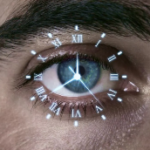Do You Have Trouble Seeing at Night?
If so, you’re not alone. Night blindness (also known as nyctalopia) is a condition in which someone has difficulty seeing in dim light or darkness (no, you’re not actually blind). Night blindness is not a disease, but rather an indication of an underlying condition.
Symptoms of night blindness include:
• Difficulty adapting to the dark while driving at night
• Blurry vision when driving in the dark
• Difficulty seeing in places with dim lighting
• Squinting in dim light
• Eyes have difficulty adjusting from brightness to darkness
• Inability to see people and animals walking at night
Causes of night blindness
Because aging and vision problems go hand in hand, if you’re over the age of 50 you are at greater risk of suffering from night blindness.
Causes of night blindness include:
• Cataracts—Where the lens of the eye becomes cloudy, resulting in blurry or distorted vision
• Myopia—Nearsightedness, where close-up objects appear clear, but far-away objects are blurry
• Glaucoma—Medications used to treat glaucoma that work by constricting the pupil can cause night blindness
• Vitamin A deficiency—An insufficiency of pigments needed for your eyes’ photoreceptors to work correctly
• Retinitis pigmentosa—A rare disease in which there is damage in the retina caused by genetic defects
Treatments for night blindness
If you have difficulty seeing at night, it is important to visit your eye doctor at Ophthalmic Consultants of the Capital Region. Call us at 518-438-5273 to set up an appointment. We will perform tests to determine whether you have night blindness and, if so, what the underlying condition is behind the night blindness.
Treatment will vary depending on the cause of your night blindness. If the cause is cataracts, surgery might be the best solution. If it’s myopia, you may need a new eye glass prescription. If it’s glaucoma medications or a vitamin A deficiency, a new medication or supplement may be in order. If it’s retinitis pigmentosa, we can suggest treatment options for your particular symptoms.
Don’t hesitate to call us—we’ll help you get to the root of the problem and have your night vision restored in no time.


